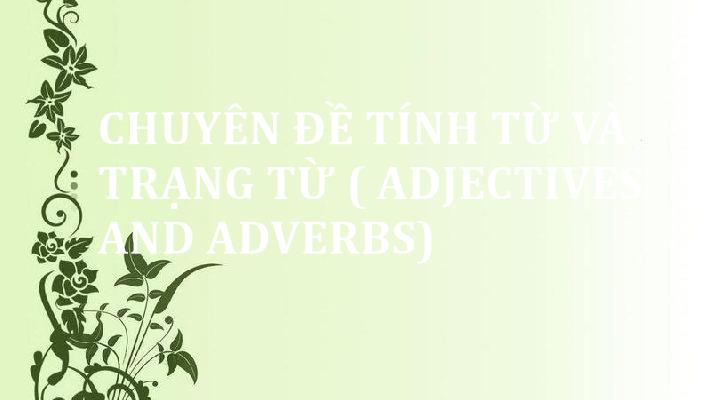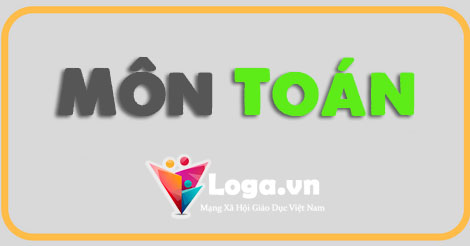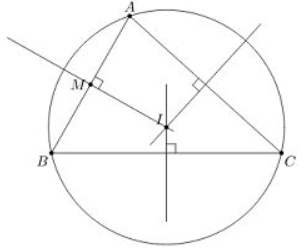UNIT 4: LEARNING A FOREIGN LANGUAGE
( HỌC NGOẠI NGỮ)
I.NEW WORDS:
1.learn by heart: học thuộc lòng
2.as + adj/ adv + as possible càng ... càng tốt
E.g: You come as soon as possible.
3. quite (adv) = very, completely: rất
4.examiner (n) giám khảo
=>examine (v) tra hỏi, xem xét
=>examination (n) kỳ thi
5.foreign (adj) (thuộc về) nước ngoài, ở /từ nước ngoài
=> foreign languge (n) ngoại ngữ
=> foreigner (n) người nước ngoài
6. to persuade (v) thuyết phục, làm cho ai tin
=>persuasion (n) sự thuyết phục, sự tin tưởng
=> persuasive (a) có sức thuyết phục
7.go on= continue: tiếp tục
8.aspect (n) khía cạnh
9.in the end = finally= at last: cuối cùng
10.exactly (adv) chính xác
11. passage(n) đoạn văn
12. attend (v) theo học, tham dự
=>attendance (n) sự tham dự
=> attendant (n) người tham dự
13.course (n) khóa học
14.written examination kỳ thi viết
=> oral examination kỳ thi nói
15. candidate (n) thí sinh, ứng cử viên
16 award (v, n) thưởng, phần thưởng
17.scholarship (n) học bổng
18. dormitory (n) ký túc xá
19.campus (n) khuôn viên trường
20.reputation (n) danh tiếng
21.experience (n, v) kinh nghiệm, trải qua
22.culture (n) văn hóa
=> cultural (a) thuộc về văn hóa
23. close to: gần
24.scenery (n) phong cảnh, cảnh vật
25.national (a) thuộc về quốc gia
=> nation (n) quốc gia, đất nước
=>national bank ngân hàng nhà nước
=> nationality (n) quốc tịch
26.improve (v) cải tiến
- improvement (n) sự cải tiến, sự cải thiện
27.intermediate (a) trung cấp
28. to qualify (v) ( làm cho ai) có đủ điều kiện/ tư cách / khả năng
=> qua;ofoed (adj) : đủ tư cách, đủ năng lực
=> well-qualified (a) có trình độ cao, có tay nghề giỏi
E.g: He is a well-qualified dotor
( Ông ấy là một bác sĩ có trình độ chuyên môn cao)
29.tuition (n) = fee: học phí
30.academy (n) học viện
31. advertisement (n) = ad bài quảng cáo
=> advertise (v) quảng cáo
32 edition (n) lần xuất bản
33.look forward to + V-ing :mong đợi
34. polite (adj)# impolite, rude : lịch sự, lễ phép # bất lịch sự, vô lễ
=>politely (adv) (một cách ) lịch sự, lễ phép
=> politeness (n): cử chỉ lịch sự
35. to supply (v) cung cấp, tiếp tế, đáp ứng
=> to supply sb with sth / supply sth to sb : cung cấp cho ai, cái gì
=> supply(n) sự cung cấp, sự tiếp tế
II. GRAMMAR:
1/ Modal verbs with if (động từ tình thái với mệnh đề If)
Động từ tình thái (modals) được dùng trong mệnh đề chính của câu điều kiện để diễn đạt khả năng, sự chắc chắn, sự cho phép, bổn phận, lời khuyên hoặc sự cần thiết.
|
If clause ( mệnh đề If) |
Main Clause (Mệnh đề chính) |
|
Present tense: If+ S+ V1 |
Will/can/ may...+Verb (bare Inf) |
Eg:1) If you want to drive a car you must have a driving licence.
(Nếu bạn muốn lái xe hơi bạn phải có bằng lái xe)
2)She may accept your offer if you ask her. (Cô ấy có thể sẽ chấp nhận nếu anh hỏi cô ấy)
3) If you want, you can go now.
(Nếu muốn, anh có thể đi bây giờ)
*Lưu ý: Ta có thể đặt mệnh đề if trước hoặc sau mệnh đề chính
Nếu mệnh đề if đứng trước , thường có dấu phẩy (,) sau mệnh đề.
E.g: If you want, you can go now.
Hoặc You can go now if you want.
2/ Reported speech (câu gián tiếp)
a. Cách chuyển đổi từ câu trực tiếp sang câu gián tiếp:
- Đổi chủ ngữ tân ngữ tính từ sở hữu trong câu trực tiếp sao cho phù hợp với ngữ cảnh
-Thay đổi thì của động từ (lùi thì)
- Biến đổi các đại từ chỉ thị trạng từ chỉ thời gian địa điểm.
|
|
Câu trực tiếp |
Câu gián tiếp |
|
tenses |
S + am/ is/ are → S + V → S + will + V → S + will be → S + have P2 → S + are/ is/ am + going to V→ S + was/ were Ving → S + have/ has been Ving → Must → Have to → Should.......................... → Ought to → Can → May → |
S + was/ were S + Ved S + would V S + would be S + had P2 S + was/ were + going to V S + had been + Ving S + had been Ving Had to Had to Should Ought to Could might |
|
Time |
Yesterday Five days ago Last week Now Today Tonight Tomorrow Next week Ago The day before yesterday The day after tomorrow |
The day before/the previous day Five days before/ earlier The week before/ the previous week Then That day That night The next day/ the following day The next week/ the following week Before Two days before In two day s time |
|
place |
Here there |
There there |
|
|
This these |
That those |
|
Personal pronouns |
I We You They He/she it |
He/ she They You/ he/ she They He/she it |
|
Possessive pronouns |
My Our Your Their His/ her its |
His/her Their His/her/their Their His/her its |
|
|
This/ these + N |
The + N |
|
|
This / that là đại từ chỉ thị Ex: people say "We should solvethis" |
It/ them/ they People say they should solveit. |
b. Một số hình thức câu gián tiếp cơ bản
- Reporting statements (câu trần thuật)
"I m very happy." Annie said.
→ Annie said (that) she was very happy.
"We like oranges."
→ They said (that) they liked oranges.
Thường sử dụng các động từ tường thuật như: said said to told reported ....
- Reporting commands and requests
Cấu trúc: S + V (asked/ told ...) + O + to (not to) + V ...
Ex: "Shut the door Tom" he said.
→ He told Tom to shut the door.
**Cách chuyển đổi:
+ đổi động từ tường thuật sang: told (bảo) asked (yêu cầu ra lệnh) advised (khuyên) persuaded (thuyết phục) begged (van xin) ...tuỳ theo ngữ cảnh lời nói.
+ tìm tân ngữ đặt ngay sau động từ tường thuật trên
+ bỏ dấu hai chấm ngoặc kép
+ với câu mệnh lênh khẳng định chuyển động từ mệnh lệnh thành To V; với câu mệnh lệnh phủ định chuyển động từ mệnh lệnh thành Not to V
+ biến đổi thì của động từ đại từ nhân xưng đại từ sở hữu các từ chỉ thời gian sao cho phù hợp với ngữ cảnh
- Reporting questions (câu hỏi)
+ Yes/ No questions (câu hỏi có câu trả lời là Có hoặc Không)
She + asked/ wanted to know/ wondered + (O) + if/ whether + mệnh đề
E.g: Mary said to Nam "Can you speak English?"
→ Mary asked Nam if/ whether he could speak English.
"Do you go to school?" he asked
→ He asked if I went to school.
+ Wh - questions (Câu hỏi có từ để hỏi)
S + V + (O) + who/ what ... + Mệnh đề
E.g: Betty said to Jane "What are you doing?"
→ Betty asked Jane what she was doing.
"When did your sister leave for Danang?" asked Tina.
→ Tina asked me when my sister had left for Danang.
** Chú ý
- khi động từ tường thuật ở các thi hiện tại hoặc tương lai các thì cảu động từ trong câu trực tiếp không đổi các từ chỉ thời gian và nơi chốn vẫn giữ nguyên
E.g:She says "Tim won the scholarship last week."
→ She says Tim won the scholarship last week.
- khi lời nói trực tiếp diễn tả một chân lý sự kiện hiển nhiên định luật khoa học động từ của lời nói trực tiếp không đổi thì
E.g:He said "Ice melts in the sun."
→ He said (that) ice melts in the sun.
III.EXCERCISES:
EXERCISE 1
Put the verbs in brackets into the correct tenses. Điền động từ trong ngoặc đơn ở vào đúng thì.
1. If you (read) in bad light you will ruin your eyes.
2. Somebody (steal) your bicyle if you leave it unlocked.
3. What will happen if her parachute (not open).
4. If the page-boy (wash) my car I'll given him a dollar.
5. If she (need) a computer she can borrow mine.
6. If you (not go) away I'll send for the police.
7. I'll be very angry if she (make) any more mistakes.
8. If they (be) late I'll punish them.
9. He'll be absolutely furious if he (hear) about this.
10. If you put on the Kettle she (make)the tea.
11. You can use my hand phone if yours (not work).
12. If you (not know) the meaning of a word you may use a dictionary.
13. If Henry (refuse) to help I'll have to manage without him.
14. If Janet (not help) I'll have to manage without her.
15. If you (go out) would you buy me some cigarettes.
EXERCISE 2
Put the following statements into reported speech. Viết những lời phát biểu sau đây sang Reported-speech.
1. "Does the 2.40 train have a restaurant car?" he enquired.
2. "Can you get coffee on the train?" asked my aunt.
3. "Do they bring it round on a trolley?" she said.
4. "Are there smoking compartments?" said the man with the pipe.
5. "Have you reserved a seat?" I asked him.
6. "What country do you come from?" said Bill.
7. "How long have you been here?" said Alice.
8. "Are you working as well as studying?" asked Peter.
9. "Have you got a work permit?" Bill wanted to know.
10. "What are you going to study?" asked Jane.
11. Have you enrolled for more than one class?" said Bob.
12. "Do you want to buy any second hand books?" said Bill.
13. "Have you seen the library?" asked Janet.
14. "Do you play rugby?" said Brown.
15."Will you have time to play regularly?" he went on.
KEY:
EXERCISE 1
1. read
2. will steal
3. doesn't open
4. washes
5. needs
6. don't go
7. makes
8. are
9. hears
10. will make
11. doesn't work
12. don't know
13. refuses
14. doesn't help
15. are going
EXERCISE 2
1. He asked if the 2.40 train had a restaurant car.
2. My aunt asked if you could get coffee on the train.
3. She asked if they brought it round on a trolley.
4. The man with the pipe asked if there were smoking compartments.
5. I asked if he had reserved a seat.
6. Bill asked what country I came from.
7. Alice asked how long I'd been there.
8. Peter asked if I was working as well as studying.
9. Bill asked if had got a work permit.
10. Jane asked what I was going to study.
11. Bib asked if I had enrolled for more than one class.
12. Bill asked if I wanted to buy any second hand books.
13. Janet asked if had seen the library.
14. Brow asked if I played rugby.
15. He asked if I would have time to play regulary.







